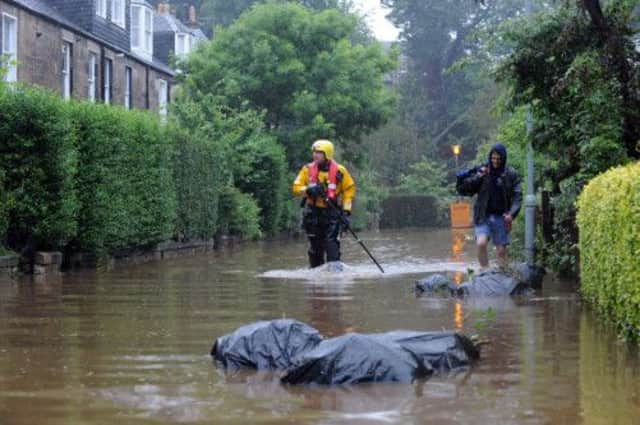Stand by for 10 years of rain-soaked summers


Cyclical warming of the Atlantic Ocean means the country is at risk of wetter than average summers for the next five to ten years, they said.
The scientists and meteorologists met yesterday at the Met Office, focusing on three specific seasons and examining some of the possible causes behind the conditions.
Advertisement
Hide AdAdvertisement
Hide AdProfessor Stephen Belcher, head of the Met Office’s Hadley Centre, said the delegates heard about “exciting” research from the University of Reading into circulation of currents in the Atlantic.
“These areas of warm and cold water can affect the atmosphere, and load the dice as to where the jetstream is,” he said.
If the jetstream ends in a southerly position, it can bring wet summers, he added.
Professor Rowan Sutton, of the University of Reading, said: “There will always be a lot of variability in British weather, but recent persistent patterns – such as the series of wet summers since 2007 – are unusual. This spring was the coldest for over 50 years; 2012 was the wettest in a century and December 2010 was the coldest on record.
“We discussed a range of research exploring how recent UK weather could arise from purely natural processes, such as cycles in the oceans, but we also looked at the influence of higher levels of greenhouse gases in the atmosphere. We have agreed to take forward new collaborative research to disentangle different influences and work out how to improve predictions.”
He said research at Reading suggests that recent wet summers could be caused by a major warming of the North Atlantic that occurred back in the 1990s.
“The North Atlantic ocean has alternated slowly between warmer and cooler conditions over the last 100 years.
“We saw a rapid switch to a warmer North Atlantic in the 1990s and we think this is increasing the chances of wet summers over the UK and hot, dry summers around the Mediterranean – a situation that is likely to persist for as long as the North Atlantic remains in a warm phase.
Advertisement
Hide AdAdvertisement
Hide Ad“A transition back to a cooler North Atlantic, favouring drier summers in the UK and northern Europe, is likely and could occur rapidly. Exactly when this will happen is difficult to predict, but we’re working on it.”
Other research suggests recent cold winters may be linked to a dip in the energy coming from the sun and more frequent “blocking” events in the Eastern Atlantic.
Blocking occurs when the warm jetstream from the west on its way to Northern Europe is blocked, allowing north-easterly winds to arrive from the Arctic.
Prof Sutton said: “Blocking episodes can persist for several weeks, leading to extended cold periods in winter.
“As well as such natural processes, we know that weather across the UK and Europe is being affected by higher levels of greenhouse gases in the atmosphere. For example, rainfall events have become more intense and this is quite likely linked to a warmer climate. There is also some evidence linking the record low amounts of Arctic sea ice to UK weather, but this evidence is not yet conclusive either way.”
The meeting also discussed areas of study that may yield a better idea of what could be causing extremes.
Investigation into our extraordinary times and unusual climes
The Met Office group met yesterday to discuss three key periods and the weather patterns seen during those periods.
Advertisement
Hide AdAdvertisement
Hide AdThe first examined was the cold winter at the end of the 2010 and the beginning of 2011.
During December 2010, temperatures were the lowest for a century. There was extensive snow during that period, and low temperatures caused chaos, with airports closed, roads blocked, events cancelled and schools shut.
The experts also looked at the summer of 2012. That was the wettest since records began and saw serious flooding, such as that seen in the east of Scotland and when Edin-burgh’s Stockbridge Colonies, close to the Water of Leith, flooded.
Finally, they analysed this year’s cold spring, which was the fifth coldest since 1910. In March, temperatures averaged just 2.2C.